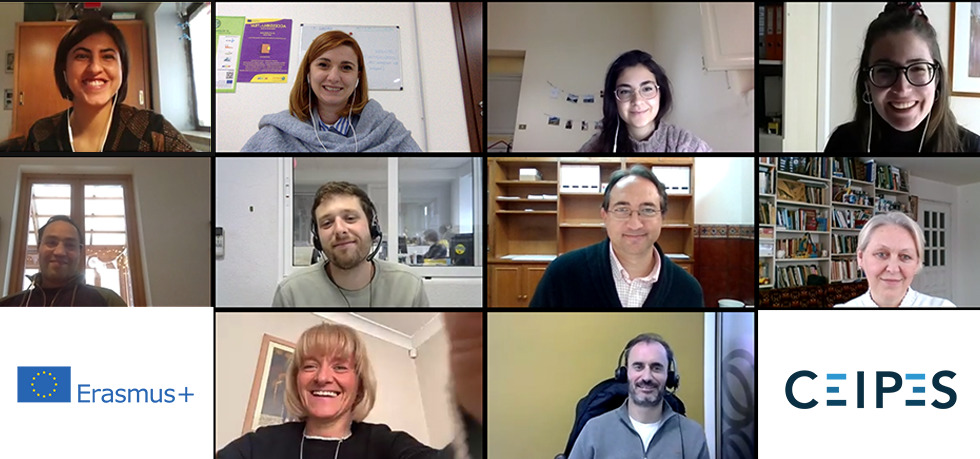Project name: INCAI – Inclusive Artificial Intelligence
Project number: 2020-1-UK01-KA204-079191
Duration: 24 months
Coordinator: MEH – MERSEYSIDE EXPANDING HORIZONS LIMITED (United Kingdom)
Financed by: European Commission under the programme Erasmus+ KA2 – Strategic Partnership for adult education
Partners: CEIPES – CENTRO INTERNAZIONALE PER LA PROMOZIONE DELL’EDUCAZIONE E LO SVILUPPO ASSOCIAZIONE (Italy), AIJU – ASOCIACION DE IVESTIGATION DE LA INDUSTRIA DEL JUGUETE CONEXAS Y AFINES (Spain), SYNERGASIA ENERGON POLITION (Greece), I AND F EDUCATION AND DEVELOPMENT LTD (Ireland), VALUE HUB (Sweden), KAUNO TECHONOLOGIJOS UNIVERSITETAS (Lithuania), ORANGE HILL (Poland)
On the 25th January 2021 the KOM of INCAI – Inclusive Artificial Intelligence took place in an online meeting due to the COVID-19 emergency. The Kick of meeting (KOM) was organized in a clear and encouraging way thank to the great organization of the coordinator and the cooperation of all 8 partners from different European countries, backgrounds and expertise.
The INCAI project is focus on Artificial Intelligence (AI) practices that are used to develop social inclusion for disadvantaged learners. Indeed, it is closely related to innovate practices in the digital era. Thanks to the increased ITC skills, learners from disadvantaged group will have better access to the other educational channels such as lifelong learning through flexible, specifically tailored and open education. Also, they will have better social inclusion by participating in learning through virtual environments and social forums and they will be able to access learning and develop resources that will meet their needs.
INCAI project is addresses to different target groups, such as: migrants; seniors, people with disabilities and mental health, low skilled people, non-native speakers, LGBTQ and BME communities and ex-offenders, members of deprived communities experiencing poverty and social exclusion.
The project will greatly contribute to the development of educators’ and adult trainers’ competences since participants from disadvantaged and marginalised target groups will have the direct opportunity to observe different methodology and techniques used in AI education and inclusion.
To achieve the goals of the project, the partners has defined the following objective:
- To compare, share and identify and promote good practice that can enhance the inclusion of adults from disadvantaged groups in education and learning.
- To enhance the provision of good quality learning opportunities to adults’ learners in particular those from excluded groups.
- To contribute to social inclusion in education across the EU using AI.
- To develop and broaden the competences of adult education providers and organizations work with adults’ learners from excluded groups
- To demonstrate the significant role AI technology can play in improving inclusion in learning in current practices across EU.
- To present identified best practices and develop guidelines on how to prepare AI wireframes.
Regarding the KOM, it was held following a structured agenda. Partners discussed different topics. Initially all partners introduced their realities and activities of their organizations. Then, MEH the coordinator, reported the UK NA feedback, meanwhile she made an overview of the project. Then, the coordinator spoke about the roles of each partner, showing the timeline and initial deadlines. In a second part, the consortium of partners discussed about the financial management and how they need to follow the guides lines.
In the last part the coordinator asked to write some ideas on what to expect from the project and what are the important ideas to consider for starting to work on the project. In conclusion partners will meet again on the 24th February for a quick online meeting to monitor the progress.
Please to know more about the project follow our social media accounts on Facebook, LinkedIn, Instagram and Twitter.
